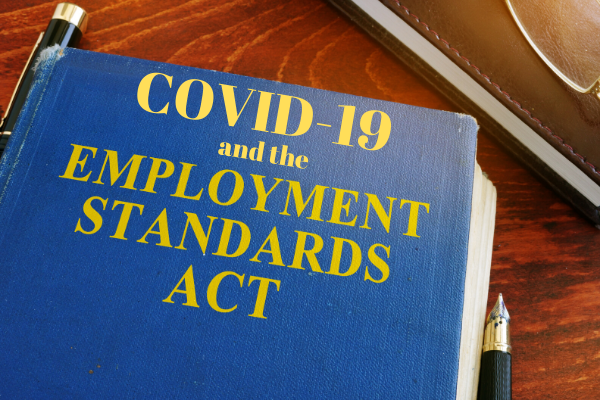
Estate planning is an important part of protecting your family and loved ones in the event of your death or loss of capacity. It is always a good idea to consult with a legal professional who can advise you on your rights and obligations and help you prepare your Will and incapacity planning documents. Below are some things to think about before meeting with a lawyer or notary:
Will:
1. What are your general objectives? What do you want to achieve? What do you want to avoid? For example, you may wish to ensure your spouse and children are looked after and reduce the impact of taxes.
2. Who do you want to appoint as executor of your Will? This is the person who will administer your estate. Often spouses are appointed as executor since your spouse likely has the most knowledge of your assets. Make sure to speak to your intended executor(s) in advance to make sure he or she is willing to act. Being an executor is not a fun job and naming a person as executor does not mean that person is obligated to take on the role. Consider who you would like to appoint as an alternate executor if your first choice is unable or unwilling to act as your executor.
3. Consider whether you will gift any specific assets or cash to a particular beneficiary or beneficiaries – for example, a cash gift of $1,000 to a close friend or your jewellery to a granddaughter. Please keep in mind that assets will change over the years.
4 The residue of your estate is everything that is left after payment of debts, funeral expenses, executor’s fees, taxes, legal and other expenses incurred in the administration of your estate, and following any gifts of specific assets or cash, if any. Consider how you want the residue of your estate to be distributed. You should also consider whether you want your beneficiary or beneficiaries to reach a certain age before they receive their share of your estate. Are any beneficiaries disabled and receiving government benefits? If so, it is important to develop an estate plan that does not inadvertently disqualify the beneficiary from receiving those government benefits.
5 If your beneficiary or beneficiaries have died before you, what happens to their share? Will it go to that beneficiary’s children, if they have any children alive on the date of your death? Will it go to a different beneficiary? For example, you may wish to leave everything to your spouse if they survive you. If your spouse has died before you, you may state that his or her share will be evenly distributed among your children (if any). What happens if one or more of your children have died before you? Do you want that child’s share to pass to his or her children or do you want that child’s share to be divided among his or her siblings who are still alive at the time of your death?
6. How would you like your estate distributed in the event of a family tragedy where all of your beneficiaries have died before you or at the same time as you? Will your estate go to your parents? To your siblings? To a charity? To a friend?
In British Columbia, the Wills, Estates and Succession Act (“WESA”) is the governing legislation about wills and estates. Under WESA, spouses (both legal and common law), as well as natural and adopted children, can apply to court to vary the Will of a deceased spouse or parent if the Will does not make adequate provision for his or her proper maintenance and support. The court may disregard the wishes of the deceased if the reasons for disinheritance are not rational or reasonable. The court may amend the distribution to one that it thinks is fair in the circumstances.
Power of Attorney
A power of attorney grants someone else the right to act on your behalf with respect to your financial and legal affairs. It is important to appoint someone you trust because the power of attorney is basically like a permission slip for that person to manage your assets. Once you grant someone power of attorney, they become known as your “attorney.” The scope of the authority can be as broad or as specific as you like. You may allow your attorney to manage all aspects of your financial and legal affairs indefinitely, or you may wish to restrict it to specific tasks or dates. The right to act as your attorney may be effective immediately or only in the event you have lost mental capacity and are incapable of managing your own affairs. It is important to include language in the power of attorney that the authority continues despite your loss of mental capacity in order to make it an “enduring” power of attorney.
Consider who you would like to appoint as your attorney and who you would like to appoint as an alternate attorney if your first choice is unable or unwilling to act. Consider whether you would like your attorney’s authority restricted in any way and when you would like the attorney to be able to start acting on your behalf.
Representation Agreements
A representation agreement is a legal document appointing someone to assist you or act on your behalf for health care and personal care matters. This tool gives someone the right to give consent or refuse to give consent on your behalf, if you are unable to do so yourself, to minor or major health care (including decisions about medication, tests, surgery and end of life comfort care) and the right to make decisions about your personal care, such as living arrangements, diet, clothing, exercise, taking part in activities and personal safety issues. Enhanced representation agreements include end of life decisions and give your representative the authority to refuse life support under certain circumstances.
Having a representation agreement ensures that someone you trust will have legal authority to carry out your wishes if you are incapable of giving or refusing consent. By setting out your end of life decisions in the agreement, you may provide comfort and ease the emotional anguish of those who have to decide whether life support measures should be continued or withheld.
Consider who you would like to appoint as your representative and who you would like to appoint as your alternate representative if your original representative is unable or unwilling to act. Consider whether you want life support measures continued or withheld (i) in the event you are terminally ill with no chance of recovery; and (ii) in the event you are in a permanent vegetative state with no chance of recovery. Consider whether you would want medicine administered to you in your terminal state even if it hastens your death.
Krystin Kempton is a Partner at Nixon Wenger LLP where she has a general solicitor’s practice, advising corporate and individual clients on corporate and commercial transactions, lending and borrowing, wills and estates and real estate matters.








